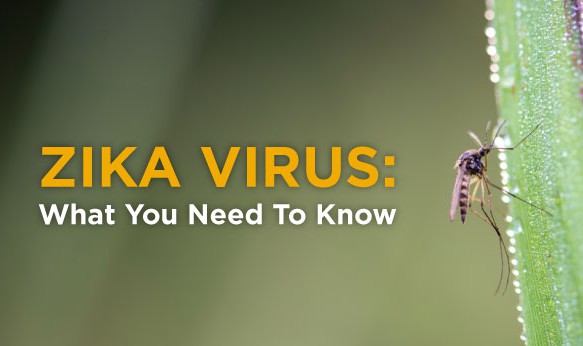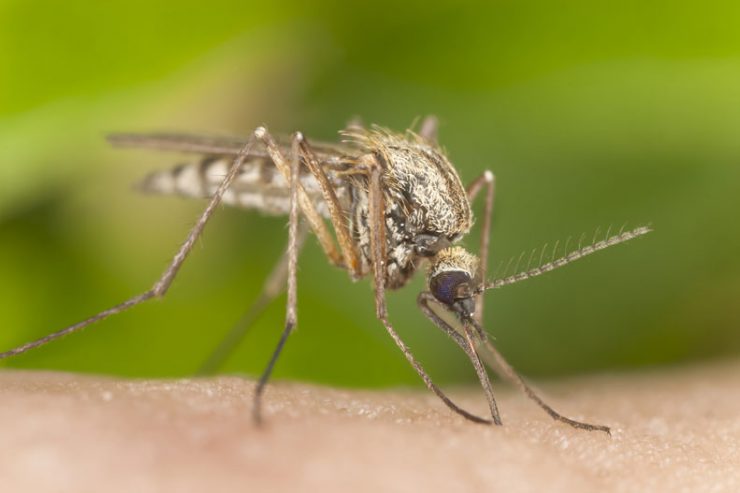This article was last updated August 2, 2016
Check back in with the UPMC HealthBeat blog for news and updates on the Zika virus
The Zika virus is a mosquito-borne illness that can trigger a host of serious ailments, most notably, Guillain-Barre syndrome, the birth defect microcephaly, and other serious brain anomalies.
Despite this, Zika is typically mild, causing symptoms like joint pain, fever, and rash. In fact, severe illness and/or death resulting from the Zika virus is still rare.
First identified in 1947, just 14 cases of Zika virus were reported before 2007. Since then, health officials have reported a notable spike in the disease worldwide, particularly in South America. Zika’s link to birth defects makes it especially worrisome for pregnant women.
With this recent Zika outbreak, you may wonder whether you are at risk and what steps you can take to prevent Zika contraction.

What Is Zika Virus? Is It in the United States?
Zika virus has been around for many years, but mostly along the equator in Africa and Asia. In the past 12 months, the virus has spread rapidly through the Americas. It is transmitted through Aedes species of mosquitoes.
So far, Zika outbreaks are happening in more than 20 countries in South, Central, and North America as far north as Mexico. Caribbean islands have also had outbreaks. The Centers for Disease Control and Prevention (CDC) advises that all pregnant women and women who want to become pregnant should avoid travel to these areas.
Only a small number of Zika virus infections have been diagnosed in the United States, predominantly in people who recently traveled to different countries with outbreaks. In August 2016, the CDC issued a travel warning, advising pregnant women to avoid traveling to a small community north of Miami. Health officials believe the virus may be actively circulating in this area. This is the only domestic travel advisory to date.
The virus isn’t transmitted through casual contact with infected individuals the way the flu or a common cold can be. No infected mosquitoes have been found in the continental United States yet, and Pennsylvania isn’t home to the Aedes species.
How Does Zika Virus Spread?
People in the United States are growing more concerned about the spread of the Zika virus. For most people, symptoms are mild if they’re noticed at all. The virus may cause Guillain-Barré Syndrome, a nerve disease that can cause paralysis, in a small number of people.
Unless you’ve been traveling to Mexico or South or Central American countries, there’s no need for much alarm yet. Here’s what you need to know about the virus.
Zika cannot be contracted through casual contact, or through air, food, or water. Health care providers who care for patients with Zika should use routine, standard precautions. No special isolation or treatment is necessary to prevent transmission.
Updated guidelines from the CDC advise that pregnant women should avoid sexual contact or use condoms with a partner who may be infected, or is at risk for infection based on his travel history, in order to prevent transmission of the Zika virus.
It is important to remember that no locally transmitted cases of Zika have been reported, and there is very little risk of acquiring Zika in Pennsylvania at this time.
To minimize possible exposure and spread, all individuals should:
- Avoid travel to areas where Zika is common, including the Caribbean and Latin America.
- Make sure you have appropriate protection against mosquitos, such as long sleeves, pants, and repellent, if traveling to high-risk areas.
- Seek medical attention if you have symptoms of Zika (fever, rash, joint pain, and conjunctivitis) and recently returned from a high-risk area.
For more information on Zika, its prevention, and updated recommendations, visit the CDC’s website.
How Does Zika Affect Pregnancy?
Zika can be transmitted from a mother to her child in the womb.
“Some Zika-infected mothers have delivered babies with abnormally small heads, a condition called microcephaly. This condition can lead to developmental delays and other serious health concerns,” said Harold Wiesenfeld, MD, Director, Division of Reproductive Infectious Diseases and Immunology, Magee-Womens Hospital of UPMC.
Research is underway to determine how long a woman and her fetus may be at risk for Zika during the pregnancy. UPMC is following all guidelines and recommendations from the CDC, the Pennsylvania Department of Health, and the Allegheny County Health Department. Pregnant women who have a history of travel to affected areas, or have a sexual partner who has traveled to a high-risk area, should contact their personal obstetricians or midwives for advice and testing.
What Are The Symptoms Of Zika Virus?
Symptoms of Zika virus are nonspecific and may include:
- Fever
- Rash
- Joint pain
- Conjunctivitis (pink eye)
Most infected individuals will not have these symptoms, but if you have these symptoms and have recently returned from an area that Zika is common, you should seek medical attention, particularly if you are pregnant.
Is Treatment Available for Zika Virus?
Zika falls in the same family as yellow fever and dengue. However, there is no vaccine or antiviral treatment available.
To manage symptoms, drink plenty of fluids, rest, and take acetaminophen. Avoid aspirin or non-steroidal anti-inflammatory drugs until dengue is ruled out.
How Can I Prevent Zika Virus Infection?
Although everyone should take precautions when traveling to affected areas, pregnant women should take extra care. If you are pregnant and have recently traveled to an affected country, including Mexico, you should visit your obstetrician to be on the safe side.
When traveling, take care to avoid mosquito bites. Use mosquito repellent and nets, and wear long pants and sleeves.
The mosquito species that carries the virus also lives in areas of the United States, particularly those with warmer climates.
Women who plan to become pregnant should also avoid travel to affected areas.
“If you have been diagnosed with the virus and are pregnant, see your obstetrician right away to evaluate the baby for infection or any problems,” Dr. Wiesenfeld advises.
The CDC and researchers around the world, including right here at UPMC, are looking for a possible vaccine as well as ways to attack the mosquito.
UPMC is following federal and international guidelines with regard to screening and testing pregnant women who may have a Zika infection.
